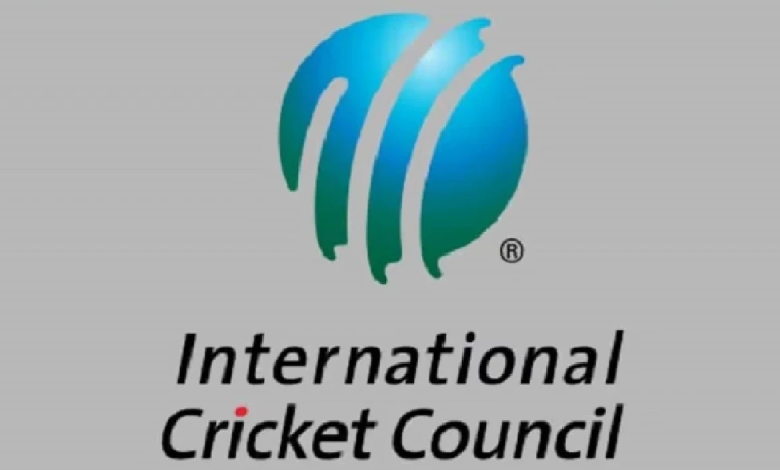Singapore, Nepal and Bhutan are among eight countries that have won top awards at the ICC Development Awards 2024. The International Cricket Council announced this during its annual board meeting on Sunday. The USA received the ICC Associate Member Men’s Team of the Year award for their outstanding performance. The American team reached the Super Eight stage in the 2024 T20 World Cup, co-hosted by the USA and West Indies.
Award Winners: Nepal (Digital Engagement), Bhutan (Women’s Initiative)
The USA created a sensation by defeating Canada and Pakistan. Besides the USA, Nepal, and Bhutan, Indonesia, Namibia, Scotland, Tanzania, and Vanuatu also received awards. Cricket Namibia was awarded the ICC Development Initiative of the Year for their grassroots-level ‘Asherton Quota Mini Cricket Program’.
For the first time, the ICC Women’s Cricket Initiative award was jointly given to Bhutan and Vanuatu. The Cricket Association of Nepal received the ‘ICC Digital Fan Engagement’ award.
The ICC President said, “We are delighted to announce the global winners of the ICC Development Awards. All winners deserved recognition for their efforts in promoting cricket in emerging nations.”
ICC Development Awards
The **ICC Development Awards** are annual accolades presented by the International Cricket Council (ICC) to recognize outstanding contributions to the growth and development of cricket in emerging nations. Established to promote the sport globally, the awards honor individuals, associations, and initiatives that have significantly advanced cricket in non-traditional regions. Categories often include Best Cricket Development Program, Associate Member Performance of the Year, and Lifetime Achievement awards, celebrating efforts to expand cricket’s reach.
Nepal
Nepal, a landlocked country in South Asia, is renowned for its stunning Himalayan landscapes, including Mount Everest, the world’s highest peak. It is a cultural and spiritual hub, home to UNESCO World Heritage Sites like Kathmandu Valley’s ancient temples, stupas, and palaces, reflecting its rich Hindu and Buddhist heritage. Historically, Nepal was a monarchy until 2008, when it became a federal democratic republic, while its diverse ethnic groups and traditions continue to thrive.
Bhutan
Bhutan, a small Himalayan kingdom, is renowned for its stunning landscapes, ancient Buddhist culture, and commitment to Gross National Happiness over GDP. It was unified in the 17th century under Zhabdrung Ngawang Namgyal and transitioned to a constitutional monarchy in 2008. Key cultural sites include the cliffside Tiger’s Nest Monastery (Paro Taktsang) and Punakha Dzong, a historic fortress-monastery.
USA
The United States of America (USA) is a diverse and vast country in North America, founded in 1776 after declaring independence from Britain. Known for its cultural influence, democratic government, and economic power, it is home to iconic landmarks like the Statue of Liberty, the Grand Canyon, and the White House. Its history includes colonization, westward expansion, civil rights movements, and global leadership in technology and innovation.
West Indies
The West Indies is a region of the Caribbean comprising numerous islands, including the Greater and Lesser Antilles, known for their tropical beauty and diverse cultures. Historically, the islands were inhabited by Indigenous peoples like the Taíno and Carib before European colonization in the 15th century, which led to the transatlantic slave trade and a legacy of African, European, and Indigenous influences. Today, the West Indies is celebrated for its vibrant music, cuisine, and festivals, as well as its role in the colonial and post-colonial history of the Americas.
Canada
Canada is a vast North American country known for its diverse landscapes, multicultural cities, and rich Indigenous heritage. Officially established as a confederation in 1867, it evolved from Indigenous settlements and later French and British colonial influences. Today, it is celebrated for its inclusivity, natural wonders like Niagara Falls, and landmarks such as the historic Quebec City and Parliament Hill in Ottawa.
Pakistan
Pakistan, established in 1947 as a homeland for Muslims of British India, is a South Asian country with a rich cultural heritage spanning ancient civilizations like the Indus Valley (Mohenjo-Daro, Harappa). It is known for its diverse landscapes, from the Himalayas to the Arabian Sea, and its blend of Islamic, Persian, and regional traditions. Key historical sites include Lahore’s Mughal-era Badshahi Mosque and the ancient ruins of Taxila, reflecting its role as a crossroads of empires and religions.
Namibia
Namibia, located in southwestern Africa, is known for its stunning landscapes, including the Namib Desert (one of the world’s oldest deserts) and Etosha National Park. Once a German colony (1884–1915), it later came under South African rule before gaining independence in 1990. The country is also home to diverse cultures, such as the San people (indigenous hunter-gatherers) and the Himba, known for their traditional semi-nomadic lifestyle.






